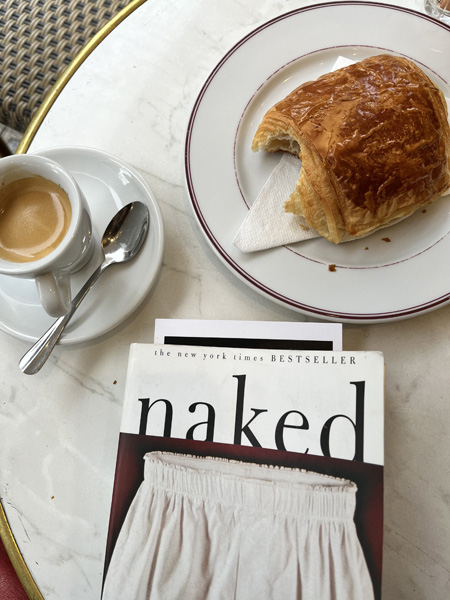 Image courtesy of Fiona McMurrey
Image courtesy of Fiona McMurrey
In France, happiness isn’t a grand pursuit. It’s not measured in milestones or productivity. Instead, it’s found in les petits plaisirs — the small pleasures that fill daily life with quiet delight.
A perfectly brewed morning coffee, the crunch of a baguette still warm from the boulangerie, sunlight falling on old stone, the rhythm of footsteps on cobblestones — in French culture, joy lives in these fleeting, sensory moments.
It’s an art, really. A philosophy that says: life is not to be chased; it is to be savored.
1. The Art of the Pause
In French, there’s no guilt in stopping. Taking a moment — faire une pause — is not laziness but mindfulness.
The French workday is punctuated by rituals of restoration: the mid-morning café, the long lunch, the evening apéritif. Each is a boundary between effort and enjoyment, a signal that being alive deserves acknowledgment.
As one Parisian café owner once said, “We don’t take breaks to escape work — we take them to return human.”
Lesson: Build pauses into your day. Even five minutes with a cup of coffee can become a ceremony of calm.
2. The Pleasure of the Everyday
The French have mastered the ability to turn the ordinary into something extraordinary. A trip to the market becomes an act of connection; a Sunday walk becomes flânerie — the gentle art of wandering without purpose.
They don’t wait for special occasions to open a bottle of wine, wear something beautiful, or light a candle at dinner. Every day offers a reason.
Les petits plaisirs remind us that life’s beauty doesn’t need grandeur — just attention.
Try this: Eat your next meal without distractions. Notice the sound of the fork on the plate, the texture of bread, the way flavors linger.
3. Coffee, Conversation, and the Ritual of Presence
Watch any French film on France Channel, and you’ll see it: the café table, two chairs, a conversation that unfolds like jazz — sometimes deep, sometimes trivial, always alive.
In France, conversation is not filler; it’s an art form. People listen, respond, digress. The pleasure lies as much in the rhythm as in the words.
Even solitude is social — reading alone on a terrace feels like part of the city’s quiet symphony.
Takeaway: You don’t need constant noise or multitasking. Try giving your full attention to a moment — or to someone — and notice how it changes the experience.
4. The Joy of Taste (and Time)
French cooking is famous not just for flavor, but for patience. Dough is left to rise slowly. Cheese is aged until it breathes. Meals stretch over hours, not minutes.
This is the same philosophy behind les petits plaisirs: that joy deepens when you give it time.
Even a croissant is a study in slowness — hundreds of layers folded, chilled, and baked until they flake into air. To eat one without rushing is to honor the labor of pleasure itself.
The French secret: Don’t save indulgence for weekends. Find joy in the meal that’s in front of you — even if it’s just toast and jam.
5. The Beauty of the Unfinished
Unlike the polished perfection we often see elsewhere, the French embrace le vécu — the lived-in look. A chipped teacup, a weathered door, a wrinkled linen shirt — these are signs of a life well-loved.
Les petits plaisirs thrive in imperfection. The cake that sinks slightly in the oven but tastes divine. The rain-soaked walk that ends in laughter. The mess of life, made poetic.
In the French imagination, joy doesn’t come from control — it comes from surrender.
6. Joy as a Daily Practice
French joy isn’t about chasing peak experiences; it’s about weaving beauty into the mundane.
It’s setting the table, even when dining alone. Writing a postcard instead of sending a text. Keeping fresh flowers on a desk, or a notebook in your bag for thoughts that arrive unannounced.
These gestures say: life matters, even in miniature.
And that’s the essence of les petits plaisirs — that we are not waiting for joy. We are already living it.
The France Channel Takeaway
Many of the films and series on France Channel embody this quiet philosophy — stories where nothing much “happens,” yet everything matters.
Whether it’s a seaside village in Marius et Jeannette or a Paris café in Amélie, these worlds remind us that joy doesn’t need spectacle. It only needs awareness.
So tonight, pour yourself a glass of wine, press play on a French film, and let it unfold at its own rhythm.
You might just find — as the French have known all along — that the secret to happiness is not in the grand gesture, but in the gentle moment.